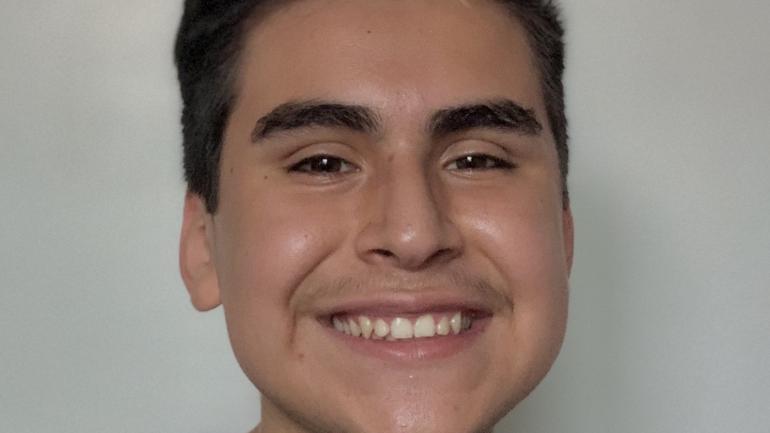
When asked how many hours he’s spent volunteering for the races and candidates of his choice for this election, GHS student Alan blushes a little, then does some quick mental calculations.
“Well, technically I started with the March for Education last November, so… 200 hours?” he said. “Maybe more like between 250 and 300. At least 200, though.”
Alan is no stranger to politics, having first been inspired as a middle school student by the vibrant community organizing taking place in the Mission as he was growing up.
“I tried sports, I tried instruments, but giving back to the community was my real passion,” he said. “Being a role model for other young people who might be interested in getting involved brings me joy.”
Now a junior, Alan is balancing commitments to three campaigns – the national presidential race, the statewide Prop 15 initiative, and San Francisco’s Prop G – with a full course load, including 3 AP classes. In conversation, he easily lays out the arguments in favor of all of his races, evidence of hours spent phone-banking after school and on weekends.
“Oh I’ve definitely gotten much better at improvising,” he said. “And not taking anything people say on the phone personally. If they’re mean I just go ‘well that’s rude’ and hang up.”
In November last year, Alan organized a March for Education to help kick off the Prop 15 campaign, which featured speakers including Sophia Andary, leader of the Women's March SF, and Gateway’s own Leah Ragen, GHS Humanities teacher. One of the causes Alan speaks most passionately about is Prop G, a San Francisco proposal to let 16 and 17 year olds vote in local races.
“I’ve been working and paying taxes since I was 14. There are thousands of sixteen and seventeen year olds in this city with jobs, driver’s licenses, who are very engaged in civic life,” he said. “We’re deeply affected by decisions our mayor and supervisors make, and being able to vote when you’re taking Civics and Government classes will support you in making voting a habit for the rest of your life.”
“I’ve had people tell me teenagers are too naive to vote when I phone bank about this issue,” he continued. “And when I say ‘what about me, who’s campaigning and calling you?’ They say I’m unusual. But I’m not unusual. We have amazing youth-led organizations in San Francisco, we have teenagers who spend a lot of time educating their peers on social media, it’s not unusual at all.”
Discussions about the election and other social issues have become more frequent in the past few weeks at school: GMS students are studying the electoral college and statewide ballot measures as well as the presidential race, and GHS students are discussing the election in advisory. Alan sometimes hears anxiety from classmates over long-term consequences the election could have for LGBTQ+ rights, reproductive rights and marginalized communities, but says he’s inspired by the way he sees young people reaching out to each other and raising awareness of what’s at stake for the country.
“I always tell people just because you can’t vote yet doesn’t mean you don’t have an opinion. Anyone can phonebank to flip a congressional seat, and that can have a huge impact on the entire country,” he said. “I can’t vote – yet – but I know I’m making a difference.”
When asked if he’d consider running for office himself one day, Alan grins.
“I do want to be involved with politics – to be involved in local roles, and then maybe go to Congress!” he said, laughing. “Some day, I think I have the passion to make it work. There’s a new generation of people wanting to go into politics. Young leaders like AOC [Alexandria Ocasio-Cortez] are changing how people perceive politics. Showing that you can come from a working class background, knowing what real people want changed, is what I want politics to be in the future.”